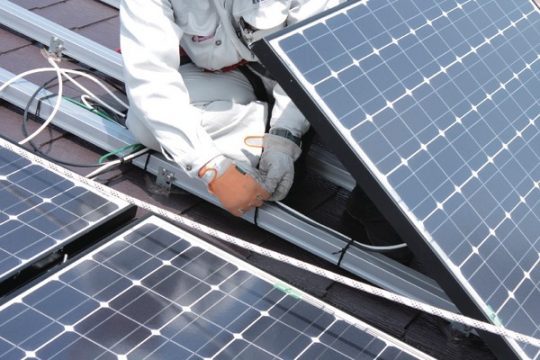The short answer is yes since electrical utility companies generate a portion of their electrical energy from solar energy; indirectly everyone is a solar PV customer if they purchase electrical energy from one of these utilities. The better question is who is a direct customer of a solar energy system; the type that will offset or replace electrical energy that would have been purchased from an electrical utility. To clearly see who these customers are, we need to break them down into categories. The first breakdown is between residential and commercial electrical consumers. The second breakdown is stand-alone off-grid customers and grid connected customers. For this blog we will look at the residential customer, both grid-connected and off-grid.
Residential: To be a potential solar customer they must be owners of the property and they must have enough sun exposed space on the roof or ground to support the PV array relative to their level of electrical consumption. They must also have the financial capacity to purchase the system. The four basic criteria are, (1) ownership of the property, (2) extent of solar exposure for a PV array, (3) % of monthly/annual electrical consumption to be offset by solar and (4) the financial capacity to purchase. With evidence of ownership established, the sun exposed space is compared to their electrical consumption to determine the size of the solar PV system and the approximate electrical consumption it will offset. If a method of payment can be established, this is a potential solar customer. There are however four other factors that should also be considered (5 – 8), (5) utility interconnection limits, fees and purchase rates, (6) rate of financial return on investment and cash flow, (7) building covenants or restrictions and (8) understanding the customer’s motivations. Contact the customer’s utility company and find out all requirements, fees and rates that will be offset by solar electrical production; this affects the type of system, cost of the system and the return on investment. Find out about homeowner’s associations or local ordinances that may restrict or even prohibit the installation of the PV array where it is publicly visible. Most solar customers want to offset their energy bills and save money in the process but there are many other motivators such as environmental concerns with conventional energy, independence from the utility or to be gird connected but consume all the energy generated from the solar PV system and have some off-grid capacity during utility power outages. Look at all eight of these considerations to determine who is a potential solar customer.
Residential off-grid: These customers are typically located in rural areas without utility access. That being the case, we can eliminate considerations 5, 6, and 7 above but #8 become much more important. This customer needs a high level of self-reliance and independence with the solar system. Other forms of power generation should be considered as well such as wind, hydro and a fuel generator.
In a follow-up blog, we will look at the criterial of a potential commercial customer.
Kelly Provence
Solairgen School of Solar Technology
